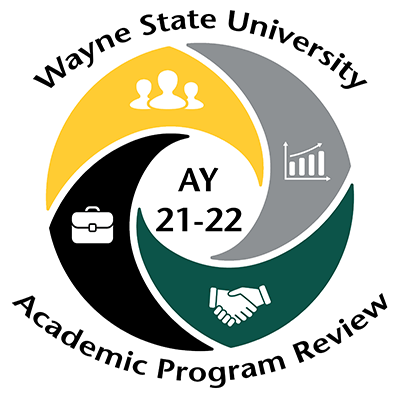Doctor of Philosophy in Educational Studies
The doctoral program in Educational Studies is committed to preparing a new generation of researchers, educators and leaders by engaging them in critical inquiry of educational issues and needs germane to large cities of the 21st century.
Important dates
-
Application Deadline: January 1 for fall cohort
Concentrations
- Curriculum and Critical Social Inquiry
- Reading, Literacy and Literature
- Science, Technology, Engineering and Mathematics
Admission requirements
- Undergraduate GPA - 3.0; Graduate GPA - 3.3
- Academic writing sample (note: instructions on the application)
- Autobiographical statement (cover sheet and narrative; note: instructions on the application)
- Letters of recommendation: two academic and one professional (note: Submitted through application process)
- Application fee (note: fee is waived for WSU graduates)
- At time of application, students select an area of concentration
Admission decisions are made once per year for the doctoral program. All application materials must be completed and submitted by the application deadline (above) for fall admission in the following academic year.
International students
International applicants should consult Wayne State University's website for international graduate applicants and the Office of International Programs International Students and Scholars (OISS).
Course and curriculum requirements
The Educational Studies Handbook provides essential guidelines for students accepted to the program. The handbook outlines the requirements and procedures that students follow in the program.
| Coursework requirements | Credit hours minimum |
|---|---|
| Major field (concentration) | 16 |
| Doctoral seminars | 8 |
| Research techniques | 15 |
| Electives (Need to reach at least 60 credit hours for full program) | Varies |
| Minor field/cognate (optional) | (12) |
| Dissertation course credits (Required by Graduate School) | 18 |
| Total | 60 |
Plans of Work
Curriculum and Critical Social Inquiry
This program of study asks us to wrestle with the questions who, what, how, and why in relation to educational theories, practices, and praxis. We engage in critical social inquiry in a variety of educational fields such as critical cultural studies, critical studies of race, critical disability studies, bilingual, English as a Second Language (ESL), and world language education, teacher education, language ideologies, critical curriculum studies, and policy sociology. We work to uncover, interrogate, and transform inequities and oppressive systems embedded in teaching and learning politics, processes, and practices. We utilize critical analytical approaches such as discourse analysis, intersectionality, critical theories of race, critical care, postcolonial theory, decolonizing and settler colonial frameworks, citizenship and belonging, social movements, community mobilization, in local, national, international, transnational, and diasporic contexts. We engage in this promising but difficult work for future researchers to recognize, understand, and sustain diverse ontological perspectives and ways of knowing and to connect and honor these ways through praxis and practice.
Reading, Literacy and Literature
This program prepares graduates to research and teach in literacy and literature, including pk-12 literacy, teaching and learning, children's and adolescent literature, English education, and curriculum design and evaluation. The program emphasizes urban inquiry, faculty collaboration, and the exploration of literacy and literature to advocate for social change.
Science, Technology, Engineering and Mathematics
This program prepares graduates for careers as researchers, school leaders, policymakers, and STEM education entrepreneurs. Students in the STEM concentration investigate teaching, learning, and assessment; policy and practice; the design, development, and enactment of STEM curricula; equity and social justice. Students receive rigorous training in research methods, including participation in faculty-led research projects. The program emphasizes issues of diversity, inclusivity, culture, and identity in the context of STEM education and research.
Assistantship and funding
The Division of Teacher Education does not offer graduate research assistantships or graduate teaching assistantships at this time. The College of Education awards scholarships each year to graduate students and the Wayne State University Graduate School offers unique opportunities in your field.
Accreditation

Wayne State University Academic Program Review
Contact
Asli Ozgun-Koca, Ph.D.
Professor and program coordinator
313-577-0944
aokoca@wayne.edu
Teacher Education Division
Phone: 313-577-0902